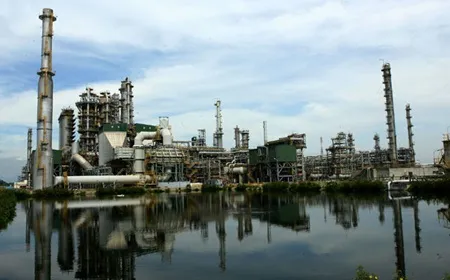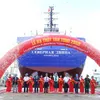PVN seeks import tax cut to compete with imports

PVN claimed in a report to the Government Office that tax policies are having a negative impact on the Dung Quat Refinery's operations.
According to PVN, the oil refinery was facing high inventories because its products could not compete with imported goods. Diesel and mazut import taxes from ASEAN countries were cut to 5 per cent and 0 per cent from January 1, 2015 in accordance with the ASEAN Trade in Goods Agreement (ATIGA). However, products from Dung Quat are still subject to an import tax of 10 per cent, forcing a number of local businesses that bought petroleum from Dung Quat to choose other sources.
Since March, several big customers, including Petrolimex, have reduced their orders.
Since mid-August, the demand for diesel in Viet Nam has been on a downward trend, and businesses prefer imported options because of the tax incentives. Dung Quat is facing challenges because diesel is its main product. The refinery produces 3.3 million tonnes per year, accounting for half of its total output.
According to Binh Son Refining and Petrochemical, the operator of Dung Quat, the refinery plant is expected to produce about 620,000-630,000 tonnes of petrol in December. Meanwhile, the refinery has made contracts to sell 520,000 tonnes monthly. It is estimated that the inventory at Dung Quat will reach 110,000 cubic metres. If customers postpone their orders until next year, the inventory will reach 190,000 cubic metres, while the capacity of Dung Quat's inventory remains at only 150,000 cubic metres.
Dung Quat, the country's first refinery, opened in 2009 and became operational in May 2010, with a capacity of refining 148,000bpd of crude oil, meeting 30 per cent of the nation's demand for petroleum products.




